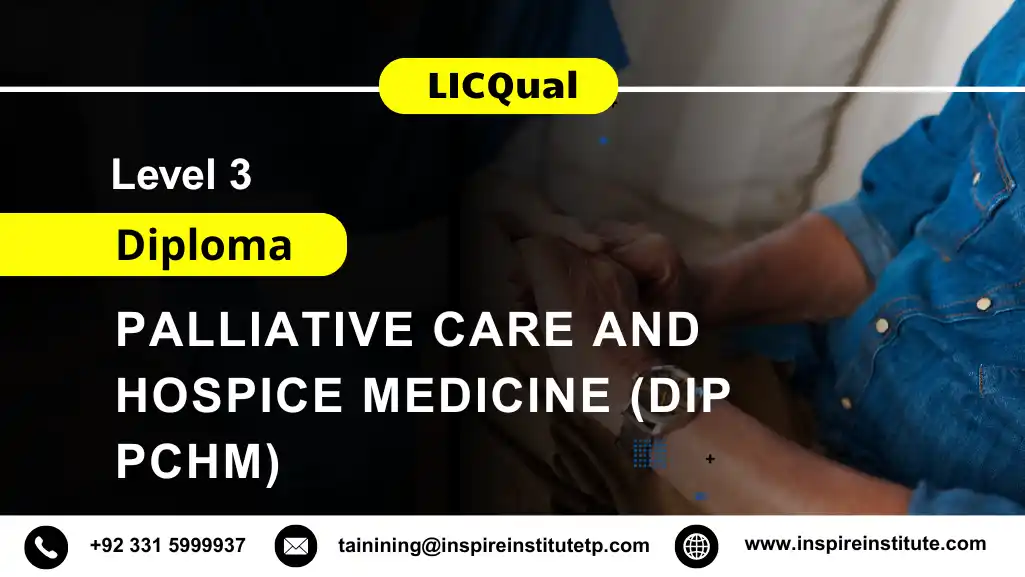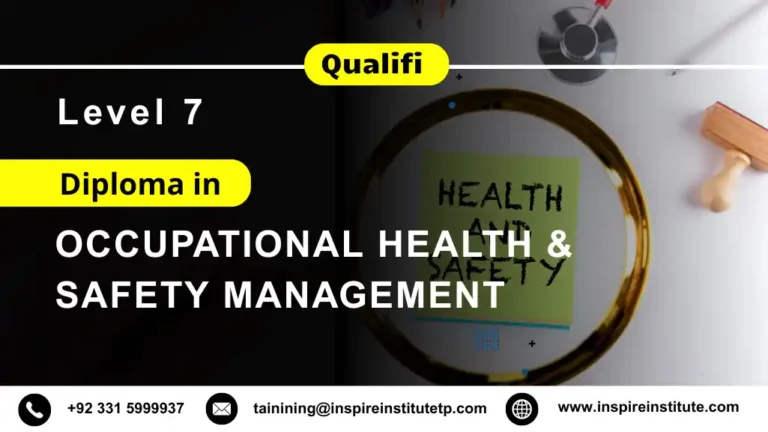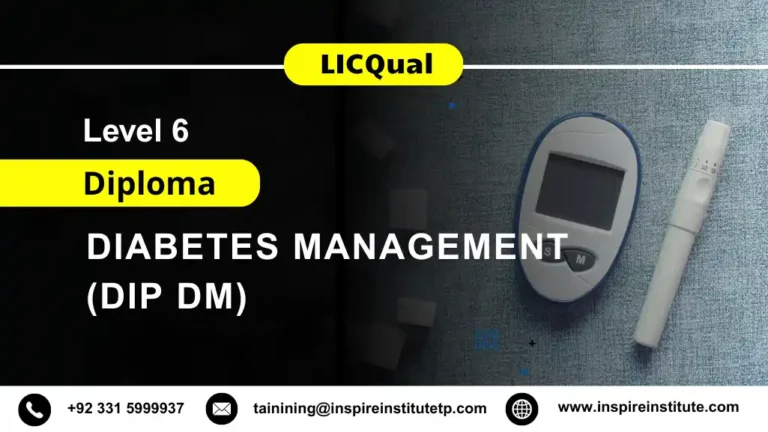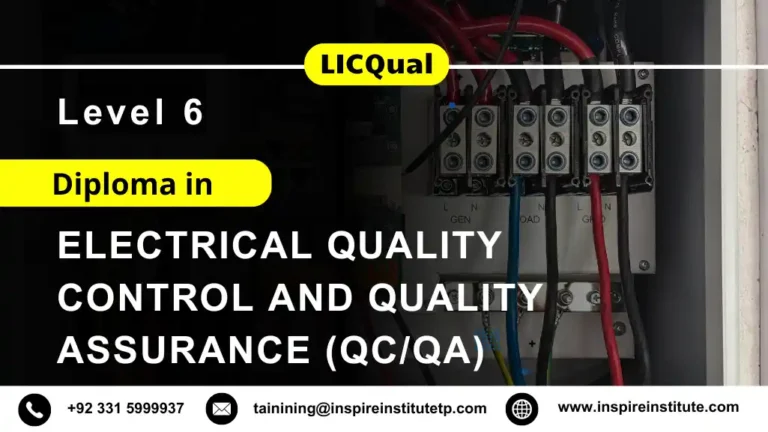LICQual Level 3 Diploma in Palliative Care and Hospice Medicine (Dip PCHM)
The LICQual Level 3 Diploma in Palliative Care and Hospice Medicine (Dip PCHM) is a UK-accredited qualification designed to equip healthcare professionals, nurses, caregivers, and aspiring clinicians with the essential knowledge and skills to provide compassionate, evidence-based end-of-life care. In today’s evolving healthcare landscape, palliative and hospice care play a critical role in improving the quality of life for patients with life-limiting illnesses, making this qualification both relevant and vital for those seeking to specialise in this deeply rewarding field.
This Palliative Care and Hospice Medicine course introduces learners to the fundamental principles of pain management, symptom control, emotional support, and holistic patient care. It explores the physical, psychological, social, and spiritual dimensions of patient wellbeing, helping learners understand the complexities of providing comfort and dignity during advanced illness. Through a combination of academic study and practical learning, participants gain the ability to deliver patient-centred care that aligns with international palliative care standards.
The LICQual Level 3 Diploma in Palliative Care and Hospice Medicine (Dip PCHM) emphasises the development of core clinical and interpersonal skills. Learners are trained to assess patient needs, manage complex symptoms, and communicate effectively with patients, families, and multidisciplinary teams. The programme also fosters critical thinking and ethical awareness, ensuring that graduates uphold the highest standards of empathy, professionalism, and respect in their practice.
This UK-accredited palliative care diploma also focuses on the coordination of hospice services, interdisciplinary teamwork, and cultural sensitivity in end-of-life care. Learners develop an understanding of global hospice care frameworks and strategies for delivering compassionate care in various healthcare settings, including hospitals, hospices, and community-based environments.
Delivered through an assignment-based model, this Palliative Care and Hospice Medicine qualification allows learners to balance professional and personal responsibilities while advancing academically. The flexible learning structure ensures accessibility for both experienced healthcare workers and newcomers aiming to build a career in palliative and hospice medicine.
Upon completing the LICQual Level 3 Diploma in Palliative Care and Hospice Medicine, graduates will possess the knowledge, confidence, and clinical competence to deliver high-quality palliative care services. They will be well-prepared to contribute to hospice care programmes, advocate for patient dignity, and play a meaningful role in transforming end-of-life care across hospitals, care homes, and community health organisations.
Why Choose this Qualification
The LICQual Level 3 Diploma in Palliative Care and Hospice Medicine (Dip PCHM) is an internationally recognised qualification designed to equip learners with the advanced knowledge, practical expertise, and compassionate skills required to provide high-quality palliative and hospice care. Choosing this qualification means committing to professional excellence and personal growth within one of the most meaningful fields in healthcare. This course provides a comprehensive understanding of end-of-life care, symptom management, ethical decision-making, and patient-centred communication — preparing learners to make a real difference in the lives of patients and families.
Key Reasons to Choose This Qualification
Globally Recognised and UK-Accredited Programme
- Awarded by LICQual, a reputable UK awarding body ensuring global recognition and credibility.
- Meets international standards in palliative and hospice care education and training.
- Enables learners to pursue roles in hospitals, hospices, and community health organisations globally.
- Adds a respected qualification to your professional portfolio, enhancing career progression opportunities.
Comprehensive Coverage of Palliative and Hospice Care
- Provides an in-depth understanding of pain management, symptom control, and emotional support strategies.
- Covers physical, psychological, and spiritual aspects of end-of-life care for holistic learning.
- Introduces global hospice care practices, ensuring learners understand cross-cultural approaches.
- Equips learners with the ability to plan and deliver compassionate care tailored to patient needs.
Practical and Assignment-Based Learning Approach
- The flexible assignment-based structure supports self-paced learning for working professionals.
- Encourages the application of theoretical knowledge to real-life patient care scenarios.
- Enhances critical thinking, problem-solving, and clinical reasoning skills.
- Promotes reflective learning and evidence-based decision-making in healthcare practice.
Development of Clinical and Interpersonal Competence
- Strengthens communication and counselling skills essential for patient and family interaction.
- Trains learners in empathy-driven approaches to end-of-life care.
- Improves teamwork and leadership abilities within multidisciplinary healthcare settings.
- Prepares learners to manage complex clinical and ethical challenges effectively.
Career Advancement in the Healthcare Sector
- Opens pathways to roles such as Palliative Care Nurse, Hospice Coordinator, or Clinical Support Specialist.
- Enhances employability in hospitals, hospices, aged-care facilities, and community services.
- Serves as a stepping stone toward advanced studies in healthcare or palliative medicine.
- Builds a professional foundation for both local and international healthcare employment.
Ethical and Compassionate Care Emphasis
- Promotes an understanding of ethical decision-making and moral responsibility in patient care.
- Encourages compassionate communication and emotional intelligence in healthcare delivery.
- Fosters a patient-centred approach focused on dignity, comfort, and respect.
- Instils values aligned with global healthcare standards and humanitarian principles.
Accessibility and Flexibility for All Learners
- Designed for healthcare professionals, caregivers, and individuals aspiring to enter the medical field.
- Provides flexible online and distance learning opportunities to suit various schedules.
- Ensures inclusivity by accepting diverse educational and professional backgrounds.
- Offers a supportive learning environment with continuous academic guidance.
Contribution to Community Health and Wellbeing
- Empowers learners to play an active role in improving community palliative care systems.
- Encourages advocacy for quality end-of-life care and patient rights.
- Promotes awareness of global health challenges related to ageing and chronic illness.
- Enables graduates to contribute meaningfully to sustainable healthcare development.
The LICQual Level 3 Diploma in Palliative Care and Hospice Medicine (Dip PCHM) is not just a qualification — it is a commitment to compassionate care, ethical practice, and professional excellence. By choosing this course, learners invest in both their career and humanity, gaining the confidence, competence, and compassion to transform the lives of those facing life-limiting illnesses. This qualification opens doors to meaningful career opportunities and empowers graduates to make a lasting impact in global healthcare.
Course Overview
LICQual UK Awarding Body
Average Completion Time:
4-12 Months
Study Units: 6 Units
Evidence & Assignment Based
Mandatory Units
Who Should Take This Course
The LICQual Level 3 Diploma in Palliative Care and Hospice Medicine (Dip PCHM) is designed for individuals who are passionate about improving the quality of life for patients with life-limiting or terminal illnesses. This qualification provides the knowledge, empathy, and clinical competence needed to deliver high-quality palliative and hospice care in hospitals, community settings, and long-term care facilities. Whether you are a healthcare professional, a caregiver, or someone looking to begin a meaningful career in healthcare, this course offers valuable skills and practical expertise to make a lasting difference in patient care and end-of-life support.
This Course is Suitable For
Healthcare Professionals Seeking Specialisation in Palliative Care
- Ideal for nurses, healthcare assistants, and allied health workers aiming to expand their clinical expertise.
- Enhances professional competence in pain management, symptom control, and emotional support.
- Provides practical strategies for delivering patient-centred and compassionate care.
- Strengthens understanding of ethical decision-making and interdisciplinary collaboration in palliative care.
Medical and Nursing Students Pursuing Clinical Experience
- Offers an excellent foundation for students preparing for careers in nursing, medicine, or healthcare.
- Builds essential clinical knowledge in end-of-life and hospice care practices.
- Develops communication skills for interacting sensitively with patients and families.
- Provides a pathway to advanced qualifications or specialisation in palliative medicine.
Caregivers and Support Workers in Community and Home-Based Settings
- Equips caregivers with the skills to provide professional, compassionate home care.
- Enhances understanding of pain management and emotional support for terminally ill patients.
- Helps caregivers manage stress and improve the overall quality of patient interaction.
- Encourages a professional and ethical approach to family and community-based healthcare.
Healthcare Administrators and Coordinators
- Suitable for individuals managing palliative care units, hospices, or healthcare facilities.
- Develops knowledge of healthcare policies, quality assurance, and patient safety standards.
- Improves leadership and organisational skills in managing multidisciplinary care teams.
- Enhances ability to design and evaluate effective end-of-life care programmes.
Volunteers and NGO Workers in Health and Social Services
- Ideal for individuals involved in humanitarian, community health, or non-profit organisations.
- Provides essential insights into palliative care delivery in low-resource and community-based settings.
- Enhances awareness of global health challenges and ethical responsibilities in care provision.
- Builds advocacy and communication skills to support patients and families compassionately.
Individuals Transitioning to Healthcare Careers
- Perfect for those seeking a career shift into the medical or care sector.
- Provides foundational knowledge in anatomy, symptom management, and patient care ethics.
- Offers an accessible pathway to enter the healthcare industry with a UK-accredited qualification.
- Builds confidence to work effectively in hospitals, clinics, and aged-care environments.
International Learners and Healthcare Professionals
- Designed for students and professionals across the globe seeking recognised UK qualifications.
- Provides an understanding of global palliative care standards and ethical frameworks.
- Equips learners to contribute effectively in multicultural healthcare settings.
- Supports professional mobility and recognition in international healthcare systems.
Researchers and Academics Interested in Palliative Medicine
- Beneficial for individuals conducting studies or teaching in the field of healthcare and hospice medicine.
- Encourages evidence-based learning and critical analysis of palliative care practices.
- Provides access to the latest guidelines and international best practices in end-of-life care.
- Strengthens research and academic writing skills relevant to healthcare education.
The LICQual Level 3 Diploma in Palliative Care and Hospice Medicine (Dip PCHM) is a comprehensive qualification tailored for diverse learners dedicated to compassionate healthcare. It bridges the gap between theory and practice, empowering participants to provide comfort, dignity, and quality of life to patients during critical times. Whether you are an experienced professional or new to the healthcare field, this diploma offers the essential tools and knowledge to make a profound impact in the field of palliative and hospice care.
Course Benefits
The LICQual Level 3 Diploma in Palliative Care and Hospice Medicine (Dip PCHM) offers significant benefits for learners aiming to build specialised expertise in palliative care, hospice medicine, and compassionate end-of-life support. By integrating theoretical foundations with evidence-based practice, this UK-accredited qualification equips learners with the professional competence, clinical understanding, and empathy required to provide high-quality care for patients facing life-limiting illnesses. Designed as an assignment-based programme, it ensures learners achieve professional development and academic excellence while maintaining flexibility suitable for modern healthcare environments.
Key Benefits of the Course:
- Specialist Knowledge:
Gain a comprehensive understanding of palliative care principles, pain management, and symptom control for patients with terminal or chronic illnesses. Learners explore the psychological, social, and spiritual dimensions of care, alongside medical ethics and patient autonomy. The course provides insight into holistic care approaches that address patient comfort and dignity, preparing learners to make informed, evidence-based decisions in palliative and hospice settings. - Practical Application:
Develop essential practical skills in patient assessment, care planning, and symptom management, including pain relief, nutrition, and psychological support. Learners gain experience in providing emotional and spiritual comfort to patients and their families, ensuring compassionate and dignified care. The programme enables learners to apply their knowledge effectively in hospitals, hospices, community health settings, and home-based palliative care services. - Recognised Qualification:
Earn a UK-recognised diploma that validates your expertise in palliative and hospice medicine, strengthening your professional credibility in the global healthcare sector. This qualification aligns with international standards in patient-centred and end-of-life care, making it highly valued by healthcare employers, NGOs, and public health organisations. The LICQual Level 3 Diploma in Palliative Care and Hospice Medicine (Dip PCHM) serves as a strong foundation for advanced studies or specialised roles within healthcare. - Flexible Learning Pathway:
This assignment-based diploma allows learners to balance academic goals with professional and personal responsibilities. The flexible structure makes it accessible to healthcare assistants, nurses, caregivers, medical students, and individuals transitioning into healthcare careers. Learners can progress through the modules at their own pace while developing vital clinical and interpersonal skills relevant to real-world palliative and hospice care. - Evidence-Based Training:
The course provides exposure to current best practices, international care standards, and emerging research in palliative and hospice medicine. Learners engage with up-to-date guidelines from global healthcare authorities, ensuring they adopt safe, effective, and compassionate care models. This evidence-driven approach enhances clinical judgment, patient advocacy, and ethical decision-making, key attributes for delivering quality palliative care. - Career Development:
The qualification opens diverse career opportunities in hospitals, hospices, community health centres, long-term care facilities, and non-profit health organisations. Graduates can pursue roles such as palliative care assistant, hospice coordinator, or healthcare support worker, or advance to further qualifications in nursing, healthcare management, or palliative medicine. The diploma enhances employability by providing both the clinical and emotional competencies essential in compassionate healthcare. - Enhanced Patient Care Delivery:
Learners acquire the expertise to deliver effective end-of-life care through early symptom recognition, coordinated support, and family counselling. The programme promotes patient dignity, comfort, and wellbeing, ensuring learners contribute meaningfully to holistic healthcare. Graduates are equipped to support interdisciplinary care teams in improving the quality of life for patients and their families. - Professional Growth:
The course fosters strong communication, empathy, and teamwork skills essential for working in sensitive healthcare environments. Learners develop professionalism, ethical awareness, and resilience required for supporting patients in their final stages of life. This personal and professional development prepares graduates to become compassionate leaders in palliative and hospice care.
The LICQual Level 3 Diploma in Palliative Care and Hospice Medicine (Dip PCHM) empowers learners with the clinical knowledge, emotional intelligence, and ethical grounding necessary to excel in this vital area of healthcare. By blending academic learning with real-world application, it prepares healthcare professionals and aspiring practitioners to provide dignified, patient-centred care that truly makes a difference in end-of-life support and palliative medicine globally.
Eligibility Criteria
The LICQual Level 3 Diploma in Palliative Care and Hospice Medicine (Dip PCHM) is a UK-accredited qualification designed for healthcare professionals, nurses, caregivers, and support workers who wish to develop a comprehensive understanding of palliative and end-of-life care. This assignment-based programme combines theoretical knowledge with practical application, preparing learners to provide compassionate, patient-centred care to individuals facing life-limiting illnesses. By focusing on symptom management, emotional support, and ethical practice, the course equips learners to make a meaningful difference in palliative and hospice settings. Those who meet the entry requirements will be well-prepared to excel in this programme and apply their skills effectively in hospitals, hospices, community care centres, and long-term healthcare institutions.
Educational Background:
Applicants should hold a recognised qualification in healthcare, nursing, medical sciences, or a related discipline. Candidates with Level 2 or Level 3 qualifications in healthcare practice, social care, or medical support are encouraged to apply. Individuals with equivalent international qualifications will also be considered, provided their credentials align with the academic and professional standards of the programme. The diploma is particularly suitable for learners with an educational background in health sciences, nursing, or allied healthcare who seek to advance their knowledge and competence in palliative and hospice medicine.
Professional Experience:
Previous professional experience in healthcare, nursing, or community support is beneficial but not mandatory. A minimum of one year of experience in healthcare-related roles—such as caregiving, nursing assistance, or medical support—is recommended. Applicants who have worked in hospitals, hospices, or elderly care environments will find this qualification particularly relevant. However, individuals without prior healthcare experience but with a genuine interest in palliative care are also encouraged to apply, as the course offers strong foundational and practical training to support their professional development.
Age Requirement:
Learners must be at least 18 years old at the time of enrolment. This age requirement ensures that learners possess the maturity, emotional intelligence, and sense of responsibility necessary for studying and practising palliative and hospice care. The programme involves engagement with sensitive topics such as end-of-life support and ethical medical decision-making, requiring a professional and compassionate approach aligned with adult learning standards.
Language Proficiency:
As the LICQual Level 3 Diploma in Palliative Care and Hospice Medicine (Dip PCHM) is delivered and assessed in English, all learners must demonstrate strong reading, writing, and communication skills. Non-native English speakers are expected to have an IELTS score of at least 6.0 or an equivalent qualification. This ensures that learners can effectively engage with academic materials, complete written assignments, and communicate professionally with patients, families, and healthcare colleagues. Proficiency in English also supports accurate documentation and effective patient communication within clinical environments.
Technical Requirements:
Applicants should have access to a personal computer or laptop with a stable internet connection to engage with online course materials and submit assignments. Basic IT literacy is essential, including familiarity with online learning platforms, word processing software, and research tools. The programme’s online format offers flexibility, allowing learners to manage their studies efficiently while balancing professional or personal commitments.
Required Documents:
To complete the registration process, applicants are required to submit
A valid passport or national identification card for identity verification.
Proof of educational qualifications such as certificates or academic transcripts. Evidence of professional or healthcare experience, where applicable.For international candidates, certified translations of academic or professional documents may be required for verification. kindly convert to paraghaph
The Qualification Process
LICQual Level 3 Diploma in Palliative Care and Hospice Medicine (Dip PCHM) follows a structured pathway to ensure learners gain comprehensive knowledge, practical skills, and professional competence in community oral healthcare.
Step 1: Self-Assessment
Learners review the entry requirements to confirm eligibility. Candidates with a background in dentistry, oral health, or public health are encouraged to apply.
Step 2: Registration
Complete the registration process by submitting required documents such as proof of qualifications, a valid ID, and payment of enrollment fees.
Step 3: Induction
An induction session is conducted to:
- Verify learner eligibility and documentation.
- Introduce study materials, learning outcomes, and assessment procedures.
Step 4: Learning and Evidence Submission
Learners complete assignments, case studies, and practical exercises demonstrating competence in public health dentistry, community oral health assessment, preventive strategies, and program planning.
Step 5: Feedback and Revision
Assessors review submitted evidence and provide constructive feedback. Learners can revise and resubmit work to meet all required standards.
Step 6: Competence Validation
Final submissions are evaluated to confirm that learners have met all theoretical and practical learning outcomes.
Step 7: Internal Quality Assurance (IQA)
The IQA team reviews the assessment process to ensure accuracy, fairness, and compliance with international standards.
Step 8: External Verification (EQA)
External verifiers validate the authenticity and quality of learner achievements.
Step 9: Certification
Upon successful verification, learners are awarded LICQual Level 3 Diploma in Palliative Care and Hospice Medicine (Dip PCHM) , demonstrating advanced proficiency in community oral healthcare and preparing them for professional growth in dental public health, preventive dentistry, and healthcare policy.







